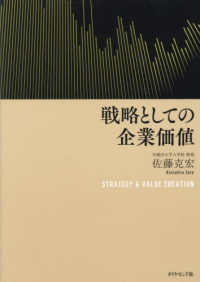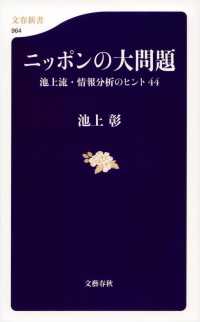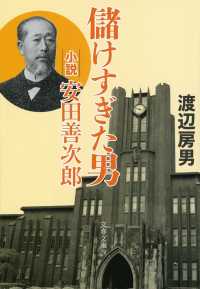- ホーム
- > 洋書
- > ドイツ書
- > Social Sciences, Jurisprudence & Economy
- > Politics, Society, Work
- > political science
Full Description
Rousseau and the Limits of the Liberal International Order considers Rousseau as a critic and a reformer of international politics, arguing that Rousseau's account of liberty drives his approach to the international realm.Rousseau's work provides an incisive critique.








